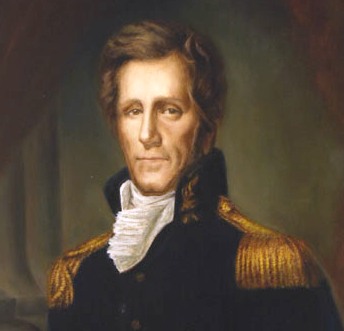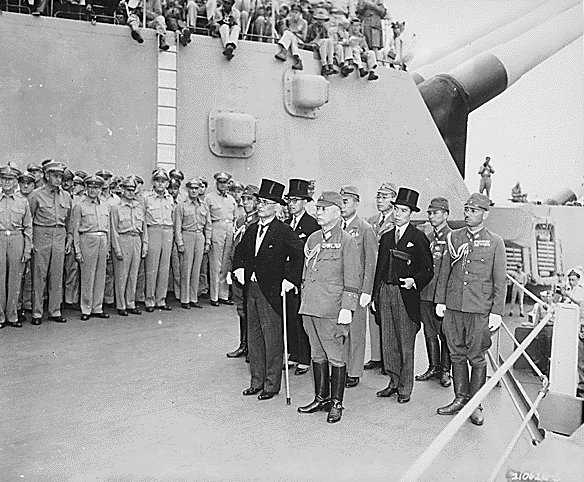 Photo of General Andrew Jackson, U.S. Army
Photo of General Andrew Jackson, U.S. Army
Don Tristan de Luna is no hero
The incompetent characters who control the Pensacola News Journal, Kevin T. Doyle, President and Publisher - kdoyle@pensacol.gannett.com Richard A. Schneider, Executive Editor - daschneid@pensacol.gannett.com - Carl Wernicke, Opinion Page Editor - cwernick@pensacol.gannett.com have been writing for weeks about Don Tristan de Luna, and his crew from Spain coming ashore in Pensacola 450 years ago. They have missed the boat.
According to history de Luna did arrive to what is now known as Pensacola in 1559, but they did more harm than good. After the hurricane paid them a visit, most of their ships and supplies went to the bottom of Pensacola Bay. What did they do? They ate the food from the native Indians, they raped their women and gave many Indians (VD) venereal disease. After they did that, they left. These intruders were no heroes.
Pensacola was blessed with a true hero in US Army General Andrew Jackson about 260 years later. We should be celebration Andrew Jackson arrival in Pensacola in 1818 rather than Don Tristan de Luna's disaster. This is part of the history of the man who became commander in chief of the American armed forces and President of the United States.
Andrew Jackson was given a major generalship in the U.S. Army and put in charge of the Gulf Coast region. He seized Spanish Pensacola in the fall of 1814 and then marched to New Orleans to counter a British invasion. After a series of largely successful preliminary engagements, on 8 January 1815 he and his troops won the main Battle of New Orleans, one of the severest defeats ever suffered by a British army. Jackson emerged a national hero.
Retaining his major generalship after the war, Jackson in 1818 pursued Indians into Spanish Florida and again occupied Pensacola. The Monroe administration reluctantly supported him, using the conquest to force Spain to sell the Floridas to the United States. Jackson resigned his commission in 1821. Except while acting as commander in chief during his presidency, he never held another command.
Andrew Jackson (1767-1845) was an American military hero who twice captured Pensacola, then capital of Spanish West Florida, during military campaigns - first in 1814 (part of the War of 1812) and again in 1818 (part of the Seminole Wars), after which he established an American provisional government in the city. He returned to Pensacola in 1821 to oversee the transfer of Florida to the United States and serve as the new territory's first governor. He made Pensacola his capital, and he named many streets.
Jackson's military accomplishments made him a popular figure, and he was elected in 1828 as the seventh President of the United States and served two terms in office, from 1829 to 1837.
Early life & career
Andrew Jackson was born to Presbyterian Scots-Irish immigrants Andrew and Elizabeth Jackson on March 15, 1767, approximately two years after they had emigrated from Northern Ireland. The youngest of the Jacksons' three sons, Andrew was born in the Wikipedia:Waxhaws area (near the border between North and South Carolina) three weeks after his father's death. He received a sporadic education in the local "old-field" school.
During the American Revolution, Andrew and his brother Robert Jackson were captured by the British and held as prisoners of war; they nearly starved to death in captivity. When Andrew refused to clean the boots of a British officer, the irate redcoat slashed at him with a sword, giving him scars on his left hand and head, as well as an intense hatred for the British. While imprisoned, the brothers contracted smallpox. Robert died a few days after their mother secured their release. Jackson's entire immediate family died from war-related hardships which Jackson blamed on the British, and he was orphaned by age 14.
From 1781, Jackson worked for a time in a saddle-maker's shop then taught school and studied law in Salisbury. In 1787, he was admitted to the bar, and moved to Jonesboro, in what was then the Western District of North Carolina and later became Tennessee.
Though his legal education was scanty, Jackson knew enough to practice law on the frontier. Most of the actions grew out of disputed land-claims, or from assaults and battery. In 1788, he was appointed Solicitor of the Western District and held the same position in the territorial government of Tennessee after 1791.
In 1796, Jackson was a delegate to the Tennessee constitutional convention. When Tennessee achieved statehood that same year, Jackson was elected its congressman. In 1797 he was elected U.S. Senator as a Democratic-Republican. He resigned within a year. In 1798, he was appointed a judge of the Tennessee Supreme Court, serving until 1804.
Besides his legal and political career, Jackson prospered as a planter and merchant. In 1803 he owned a lot, and built a home and the first general store in Gallatin. In 1804, he acquired the "Hermitage", a 640-acre plantation in Sumner County, near Nashville. Jackson later added 360 acres to the farm. The primary crop was cotton, grown by enslaved workers. Jackson started with nine slaves, by 1820 he held as many as 44, and later held up to 150 slaves. Military campaignsWar of 1812 & Creek War
Jackson was appointed commander of the Tennessee militia in 1801, with the rank of colonel. During the War of 1812, Tecumseh incited the "Red Stick" Creek Indians of northern Alabama and Georgia to attack white settlements. Four hundred settlers were killed in the Fort Mims Massacre on August 30, 1813. In the resulting Creek War, Jackson commanded the American forces, which included Tennessee militia, U.S. regulars, and Cherokee, Choctaw, and Southern Creek Indians.
Jackson defeated the Red Stick Creeks at the Battle of Horseshoe Bend on March 27, 1814. Eight hundred "Red Sticks" were killed, but Jackson spared chief William Weatherford. After the victory, Jackson imposed the Treaty of Fort Jackson upon both the Northern Creek enemies and the Southern Creek allies, wresting twenty million acres from all Creeks for white settlement. Jackson was appointed Major General after this action.
Knowing that British forces were using Spanish West Florida as a staging ground for their attacks, Jackson established a force at Mobile in August 1814 in preparation to march on Pensacola. They arrived at the city on November 6 and initiated communication with the Spanish governor, Mateo Gonz?les Manrique. The first messenger Jackson sent, Major Henri Peire, was fired upon by the garrison at Fort San Miguel despite Peire's white flag of truce. Next Jackson sent a Spanish prisoner to the fort bearing the same demand to surrender, insisting he was not making war on Spain, but Manrique refused. As Jackson's forces advanced upon the city the next morning, Manrique surrendered within minutes - though the commanders stalled for several hours in vain hope of British reinforcement. Before Jackson could move on the remaining British forces at Fort San Carlos de Barrancas, they organized a hasty retreat on November 8, blowing up the harbor defenses as they evacuated.
Jackson's actions at Pensacola were precarious for American diplomacy, and Secretary of State James Monroe wrote with instructions to "withdraw your troops from the Spanish Territory, declaring that you had entered it for the sole purpose of freeing it from the British violation." Even before receiving this correspondence, Jackson had returned the city to Manrique's control on November 9, saying that the "enemy having disappeared and the hostile creeks fled to the Forest, I retire from your Town, and leave you again at liberty to occupy your Fort."
Jackson returned to Mobile on November 19, and thence to New Orleans. In the Battle of New Orleans on January 8, 1815, Jackson's 5,000 soldiers won a victory over 7,500 British. At the end of the day, the British had 2,037 casualties: 291 dead (including three senior generals), 1,262 wounded, and 484 captured or missing. The Americans had 71 casualties: 13 dead, 39 wounded, and 19 missing. The war, and especially this victory, made Jackson a national hero.
 Victory over Japan Day
Victory over Japan Day






